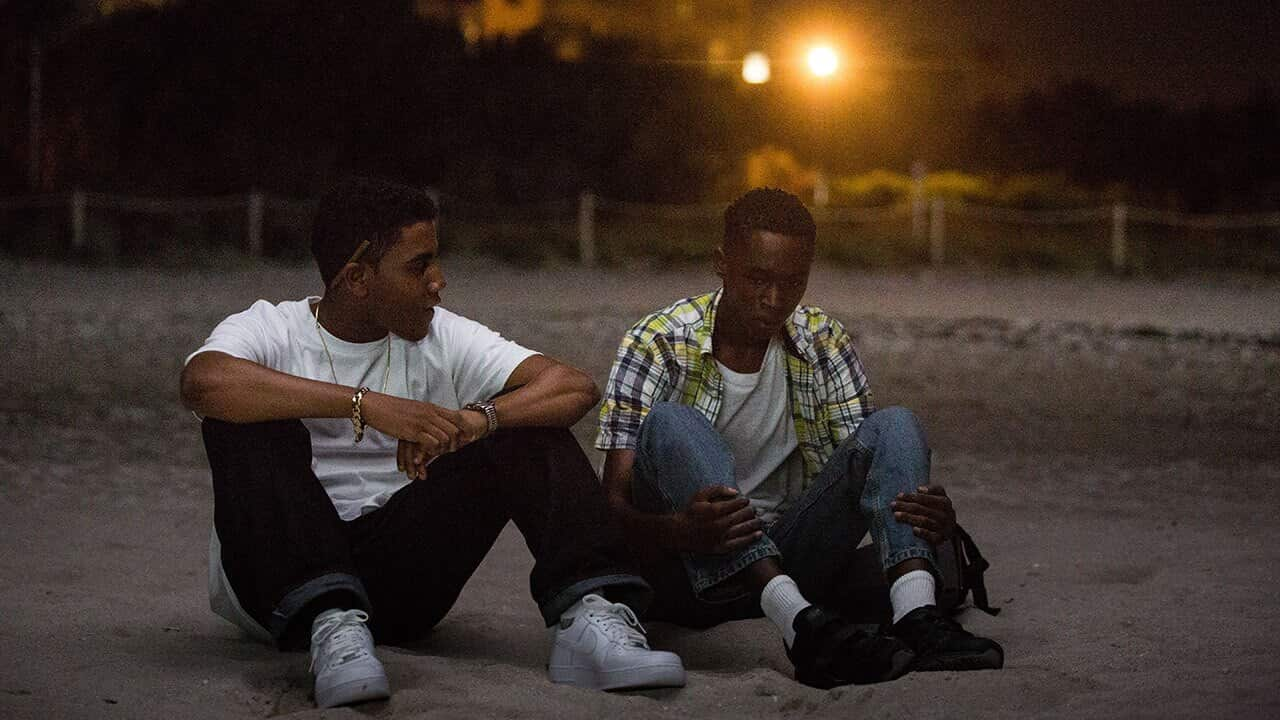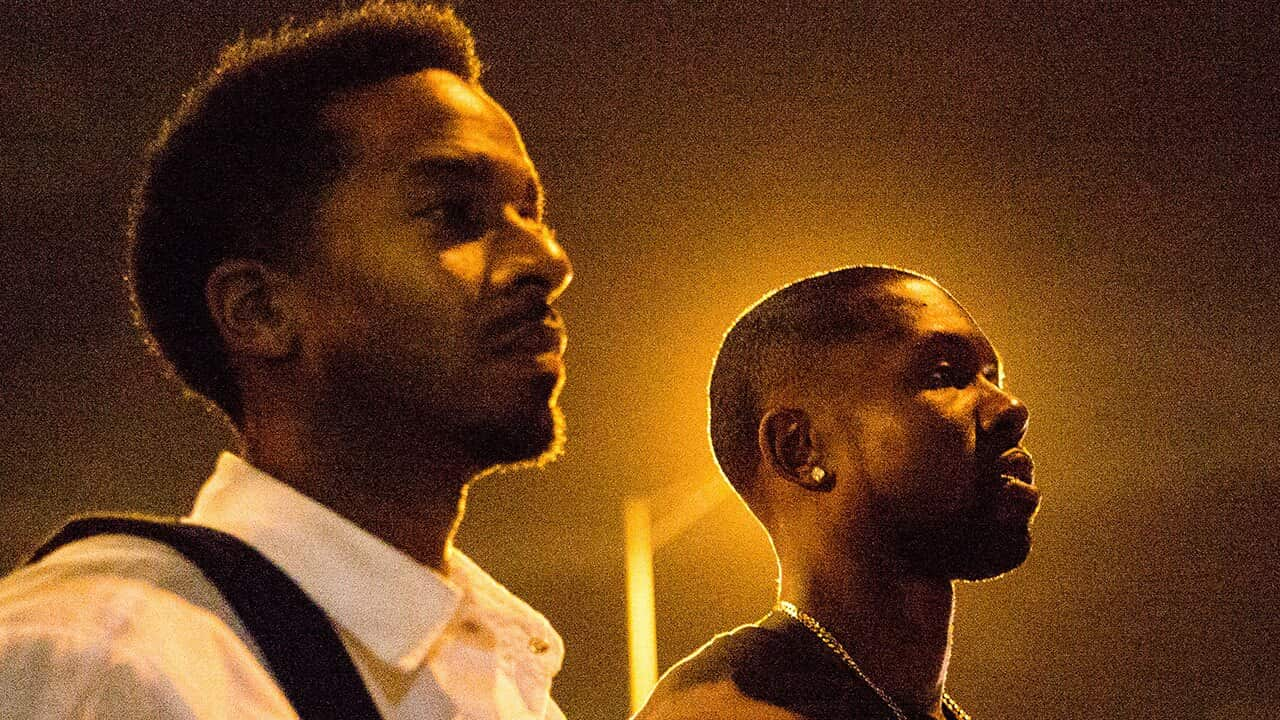Something inappropriate but all-too-familiar happened off-screen while Moonlight was making history at the 2017 Oscars. No, it wasn’t Faye Dunaway having a Mommie Dearest-style meltdown over announcing the incorrect Best Picture winner. The untelevised action unfolded on my couch at home.
As La La Land producer Jordan Horowitz interrupted his own acceptance speech to concede Best Picture to Moonlight, a notification arrived on my phone, announcing the arrival of a message from a blue-eyed stranger on Grindr:
“I want to see that nice big black c--k. I bet it’s big anyway.”
Yup, here we went again… again—another white-on-black gay fantasy.
It should have been a momentous occasion, and not just for everyone involved with Moonlight. For the first time ever, gay black men could truly see themselves depicted in the main protagonist of a Best Picture Oscar winner. But for me, that sacred moment of black pride will forever be tainted by one libidinous fool’s bad judgment and worse timing.
It wasn’t the first time a proposition from a white guy equated me to a “big black c--k” (“BBC”), and I know it won’t be the last. While size matters to more gay men than would probably care to admit it, the racial coding of “BBC” is loaded and specific. Though not every white gay man would dare use it, the acronym’s very existence reflects society’s still-skewed view of black men, the one immortalised so controversially in Robert Mapplethorpe’s classic 1980 photo Man in Polyester Suit. To far too many, we’re defined not by individual qualities but by one alleged group trait south of our six-pack.
Just as I was thinking that Moonlight’s coronation could change everything, that black men might finally be regarded as more than their sexuality, I received this bracing reminder of how far we still haven’t come. Either the latest “BBC” abuser didn’t see Moonlight, or he missed its point entirely. The movie depicted gay black men as multi-dimensional human beings with relatable and fully developed personal stories, just like gay men of any race. We’re not merely the drag queens and sassy, sexless sidekicks that normally populate the sidelines of TV and movies. Nor are we just the antithetical tall, dark, and well-hung objects of white gay men’s real-life sexual fantasies and fetishes. We’re so much more than that stereotypical myth about black men in bed.
Either the latest “BBC” abuser didn’t see Moonlight, or he missed its point entirely. The movie depicted gay black men as multi-dimensional human beings with relatable and fully developed personal stories, just like gay men of any race. We’re not merely the drag queens and sassy, sexless sidekicks that normally populate the sidelines of TV and movies. Nor are we just the antithetical tall, dark, and well-hung objects of white gay men’s real-life sexual fantasies and fetishes. We’re so much more than that stereotypical myth about black men in bed.

Source: A24
Moonlight is the first time we’ve seen two gay black men fall in love in a major motion picture. In a world where blond and blue-eyed remains the pinnacle of gay aspiration in so many cultures, we can finally see gay black men in a romantic, Aryan-free setting.
But while everyone is touting Moonlight as a game changer, I’m keeping my expectations in check. Things have hardly improved for black-white relations in the decade after the gay drama Brokeback Mountain lost the Best Picture Oscar to the race drama Crash. In some ways, the racial divide has grown, making the much-maligned Oscar winner seem somewhat prescient in hindsight.
Will the hurrah of Moonlight be similarly short-lived? When a white friend recently told me that people were referring to it as “Brokeblack Mountain,” I started having doubts. Here is a black love story told with a nearly 100 percent black cast, and some still regard it in the context of a white love story with which it actually has very little in common.
Black men have long been diminished in non-black gay culture as objects of curiosity and fetishism, good enough to bed but not to date. The beauty of Moonlight is that it has nothing to do with how outsiders see us. There’s no racist villain, no honourable white saviour. The black characters in Moonlight drive their own stories.
It’s almost a pity that Chiron grows up to look like Trevante Rhodes, the actor playing him in the third and final act. If it weren’t for his sexual preference, the main character as an adult, one who has done hard time and now deals drugs, would be a borderline-stereotypical black male archetype. He’s strong and silent, rugged, handsome and muscular (and as Rhodes proved in a recent Calvin Klein campaign, dripping with underwear-model potential), the virtual personification of the proverbial “BBC.” I’m not sure if it’s just a coincidence or a sign, but in the weeks since Moonlight’s Oscar triumph, I’ve received more “BBC” messages than ever before. Some people have suggested that the best response for black men would be to divide – stick to their own kind, like Moonlight’s romantic leads – and conquer. But that sort of romantic segregation will only feed the curiosity and mystique, perpetuating the crusty myth about black men in bed.
I’m not sure if it’s just a coincidence or a sign, but in the weeks since Moonlight’s Oscar triumph, I’ve received more “BBC” messages than ever before. Some people have suggested that the best response for black men would be to divide – stick to their own kind, like Moonlight’s romantic leads – and conquer. But that sort of romantic segregation will only feed the curiosity and mystique, perpetuating the crusty myth about black men in bed.

Source: Calvin Klein
It’ll probably take several more films like Moonlight – movies where gay black men, their romances, and their sexuality are celebrated and normalised – before everyone finally gets it. Regardless of what’s going on underneath our clothes, the beat of our black hearts makes us just as human as everyone else.




